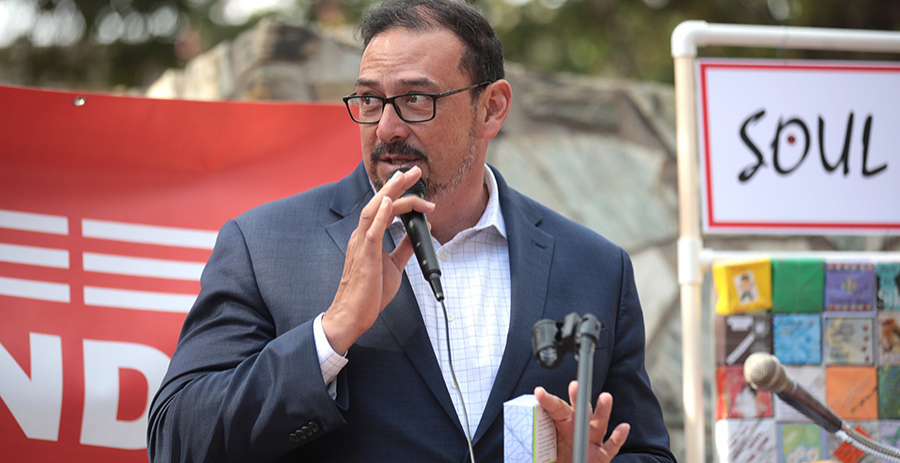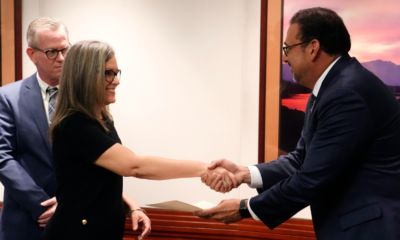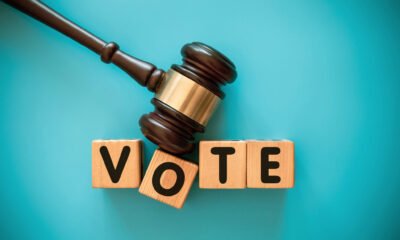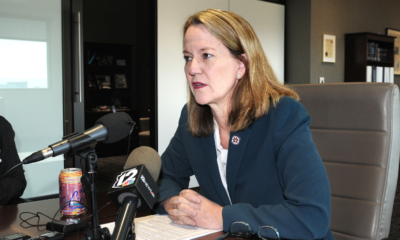2024 Election News
Fontes Battles to Protect Voter Privacy in Citizenship List Controversy

Secretary of State Adrian Fontes testified on Monday before Maricopa County Superior Court Judge Scott Blaney regarding the potential release of names belonging to approximately 218,000 voters lacking proof of citizenship. Fontes expressed concerns that disclosing this information could lead to threats and harassment directed at those identified.
During his testimony, Fontes asserted that such a list does not exist in its entirety. He highlighted personal threats he has encountered due to accusations about the fairness of Arizona’s election system, including instances of “swatting,” where false emergencies are reported to law enforcement at his home.
Fontes indicated he typically wears a bullet-proof vest for protection but faced security screening in the courthouse on Monday. He cited research from an election security expert, noting that voters labeled as potentially lacking citizenship may be in danger, particularly in light of past election outcomes in Arizona.
He voiced his fears for these voters, challenging the idea that they could simply shield themselves from harassment. “They can’t all walk around with a bodyguard,” Fontes commented, referencing security experts’ warnings about possible risks associated with releasing such information.
Merissa Hamilton, chair of the Strong Communities Foundation, testified about her organization’s intent to check the citizenship status of individuals granted the right to vote. She emphasized that her goal is to provide information to county officials rather than disseminate it widely. Nevertheless, Hamilton acknowledged intentions to share the list with various Republican lawmakers, a move that Fontes strongly opposed.
Fontes criticized the lawmakers’ past actions, including involvement in election audits and conspiracy theories surrounding voter fraud. “I’m going to fight like hell to keep a lot of those folks from having these lists,” he asserted, referencing what he views as the manipulative intentions of certain legislative members.
The judge expressed uncertainty about imposing restrictions on how lawmakers could use the information if it were released. He indicated that while he could control initial dissemination, further distribution could not be guaranteed.
Fontes emphasized the urgency of protecting voter identities due to ongoing threats. He remarked, “I don’t want blood on my hands,” highlighting the potential for violence against individuals labeled as non-citizens. He further clarified that only an initial list of 98,000 could be shared, as full records would require significant effort and resources to authenticate.
The ongoing debate arises from a 2004 voter-approved measure mandating proof of citizenship for voter registration. However, those who obtained driver’s licenses before October 1996 were exempt from these requirements, complicating the current situation for a segment of voters lacking documented citizenship.
As the election approaches, the Arizona Supreme Court has allowed those on the disputed list to vote on all races. This decision, however, places additional strain on the existing system, which Fontes argues could be misused by individuals seeking to challenge voters based on their citizenship status.
Fontes contended that Arizona’s unique requirement for citizenship proof creates a dangerous environment. He reinforced the importance of protecting voter information, saying, “I believe government should be as transparent as possible,” but prioritized public safety above all.
While the judge pledged to expedite a ruling on the matter, no specific timeline was provided. The tension over the potential release of voter information underscores broader issues of election integrity and public safety in Arizona’s political landscape.


















